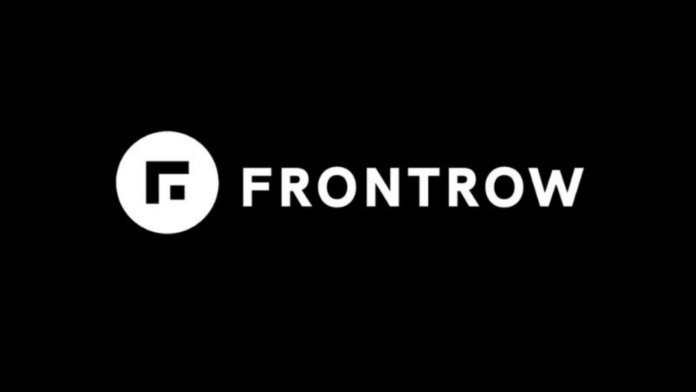One of the main reasons for Frontrow’s shutdown was its failure to achieve product-market fit. Despite raising a significant amount of funding ($17 million), the startup was unable to create a product that resonated with its target audience. This lack of fit between the product and the market ultimately led to the company’s demise.
Plateauing annual revenue
Another contributing factor to Frontrow’s shutdown was its plateauing annual revenue. After an initial period of growth, the company struggled to continue increasing its revenue year after year. This decline in revenue growth signaled a lack of sustainable success for the startup.
Excessive marketing costs
Frontrow also faced the challenge of excessive marketing costs. While marketing is crucial for any startup to gain visibility and attract customers, Frontrow’s marketing expenses became unsustainable. The high costs associated with acquiring new customers and retaining existing ones ate into the company’s profits, making it difficult for them to maintain their operations.
Low course completion rates
Course completion rates played a significant role in Frontrow’s downfall as well. Despite offering valuable educational content, the startup struggled to keep users engaged and motivated to complete their courses. Low course completion rates not only impacted the overall user experience but also affected the company’s ability to generate revenue from existing subscribers.
Lessons from Frontrow’s Cofounder
Focusing on operational metrics
Frontrow’s cofounder emphasized the importance of focusing on operational metrics rather than vanity metrics. Operational metrics provide valuable insights into the effectiveness and efficiency of a startup’s operations, such as customer acquisition costs and churn rate. By prioritizing these metrics over vanity metrics like app downloads or social media followers, founders can make data-driven decisions and measure the true success of their business.
Avoiding vanity metrics and fundraising goals
In addition to operational metrics, Frontrow’s cofounder encouraged founders to avoid getting caught up in vanity metrics and fundraising goals. While app downloads or fundraising milestones may seem impressive, they do not necessarily indicate a successful and sustainable business. Instead, founders should focus on building a strong product that solves a real problem for their target market.
Importance of launching quickly
Frontrow’s cofounder stressed the importance of launching a platform quickly. By launching early, startups can gather valuable feedback from users, iterate on their product, and make improvements based on real-world usage. This iterative approach allows founders to course-correct and adapt to the needs of their customers more effectively.
Building a strong product
Building a strong product was another key lesson highlighted by Frontrow’s cofounder. A startup’s success hinges on its ability to develop a product that offers unique value and meets the needs of its target audience. By prioritizing product development and continuously refining the user experience, founders can create a product that stands out in the market and attracts loyal customers.
Avoiding unnecessary features
Lastly, Frontrow’s cofounder advised founders to avoid adding unnecessary features to their product. It can be tempting to add bells and whistles to make a product seem more appealing, but this approach often leads to bloated and confusing user experiences. By focusing on core features and functionalities that address users’ pain points, startups can create a streamlined and intuitive product.
Other Edtech Startup Closures
Crejo.Fun shutdown
Similar to Frontrow, Crejo.Fun, an edtech startup, also experienced closure. The company faced challenges during a funding winter and experienced decreased user interest. The combination of financial struggles and a lack of user engagement ultimately led to the decision to shut down.
SuperLearn’s closure
SuperLearn, another edtech startup, faced a similar fate. Despite initial success, the startup struggled to maintain its user base and generate sustainable revenue. This decline in user interest, coupled with financial constraints, ultimately led to the company’s closure.
Funding winter and decreased user interest
Both Crejo.Fun and SuperLearn faced significant challenges due to a funding winter and decreased user interest. The edtech market can be highly competitive, and during periods of decreased funding and waning user enthusiasm, startups often struggle to stay afloat. These closures serve as a reminder of the importance of adaptability and resilience in the ever-changing startup landscape.
Blitzscaling as a Strategy
Relevance in the presence of massive demand
Blitzscaling, a strategy focused on rapid and aggressive growth, can be highly effective in the presence of massive demand. When a startup identifies a market with significant untapped potential, blitzscaling allows them to quickly capture market share and establish themselves as a dominant player. However, it is crucial to carefully evaluate the presence of such demand before pursuing this strategy, as scaling too quickly without a solid foundation can lead to a breakdown in operations.
Profitable unit economics
Another consideration for blitzscaling is the presence of profitable unit economics. Scaling rapidly requires substantial investments in resources and infrastructure. If a startup’s unit economics are not profitable, blitzscaling can quickly become unsustainable and lead to financial instability. It is essential to evaluate the unit economics and ensure that each customer’s acquisition cost is justified by their lifetime value.
Keys to Startup Success
Believing in the market
A key ingredient for startup success is a steadfast belief in the market. Founders must have confidence in the potential of their product or service to solve a real problem and meet the needs of their target audience. This belief serves as a guiding force during challenging times and helps founders stay motivated and committed to their vision.
Being prepared for a long journey
Running a startup is a marathon, not a sprint. Founders must be mentally and emotionally prepared for a long and often arduous journey. Success does not happen overnight, and setbacks and challenges are inevitable. By adopting a long-term mindset and understanding that success takes time, founders can stay resilient and persevere in the face of adversity.
Taking startup advice with a grain of salt
While seeking advice and guidance from experienced entrepreneurs and industry experts is valuable, it is essential to take their advice with a grain of salt. Every startup is unique, and what works for one may not work for another. Founders should consider advice in light of their specific circumstances and exercise their judgment when making critical decisions.
Relying on own judgment
Ultimately, founders must rely on their own judgment and intuition. While advice and insights from others can provide valuable perspectives, founders are the best-equipped to make decisions for their startup. Trusting their own instincts and being willing to take calculated risks is essential for navigating the complex and unpredictable startup landscape.
Psychological Toll on Cofounders
Emotional roller coaster
Running a startup can be an emotional roller coaster. The highs of success and achievement are often accompanied by the lows of setbacks and failures. Cofounders should be prepared for the emotional ups and downs that come with building a business, and they should have strategies in place to prioritize their mental well-being.
Loneliness
The journey of entrepreneurship can often be a lonely one. Cofounders may find themselves making difficult decisions and facing challenges without a support system or understanding peers. It is crucial for cofounders to actively seek out communities and networks of fellow entrepreneurs who can provide support, guidance, and empathy throughout their startup journey.
Giving up confusion
Giving up can be a confusing and difficult decision for cofounders. It is natural for entrepreneurs to be wired to be optimistic and persistent, believing that their ventures will eventually succeed. However, there may come a point where the loss of conviction and the realization that the startup is not achieving its goals become clear. Making the decision to shut down a startup is never easy, but it is important to recognize when it is the right choice for the overall well-being and future prospects of the founders.
Loss of conviction
A loss of conviction can significantly impact the decision-making process for cofounders. Without a strong belief in the product or the market, it becomes challenging to rally the necessary motivation and energy to continue pushing forward. Losing faith in the vision of the startup can ultimately lead to the decision to shut it down and explore new opportunities.
In conclusion, the shutdown of Frontrow serves as a reminder of the challenges faced by edtech startups and the importance of product-market fit, operational metrics, and strong product development. Learning from the lessons of experienced cofounders and being aware of the psychological toll that entrepreneurship can take are crucial for founders embarking on their startup journeys. By staying resilient, adaptable, and focused on the market, founders can increase their chances of building successful and sustainable businesses.





